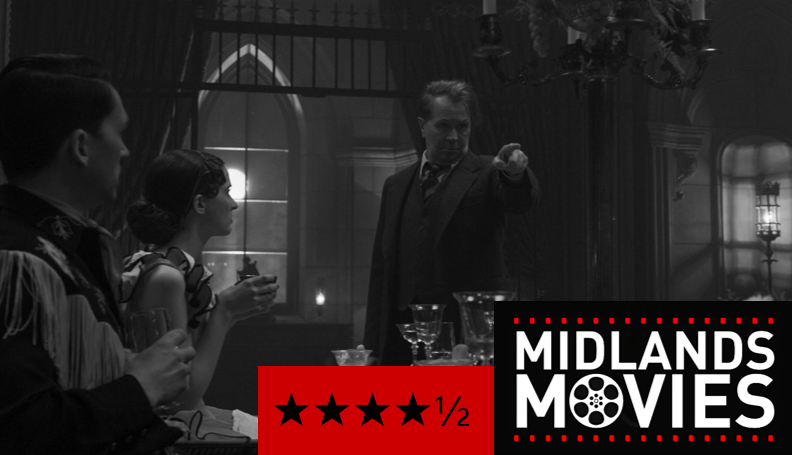Review of Mank
midlandsmovies • December 7, 2020

Mank (2020) Dir. David Fincher
Like Citizen Kane, Mank is a one-man show. For all the wonderful performances from Charles Dance (as William Randolph Herst), Lily Collins (as the put-upon Rita Alexander) and Amanda Seyfried (Marion Davies), this is the fictionalised account of Herman ‘Mank’ Mankiewicz and it is one hundred per cent Gary Oldman’s film.
It’s a dazzling piece of character work depicting the fall and rise, and fall again, of a screenwriter overshadowed not just by his alcoholism, but also his refusal to bow down to those in power.
Locked away from his vices by Orson Welles to complete the screenplay for Citizen Kane, Mank reflects on his life in Hollywood and the relationships that would influence the characters in Welles’ film.
Mank is, quite clearly, a passion project for David Fincher. His late father, Jack Fincher, wrote the screenplay, and it was supposed to go into development in the late-90s following The Game. It’s a turnabout for the books that Netflix, which is either the destroyer or saviour of cinema depending on who you ask, would be the company to provide Fincher with the means of making such an old-timey picture.
Shot in crisp black-and-white, Mank’s story has been turned into a Citizen Kane flick of its own. Told out of order, covering the highs and lows, and with Fincher’s trademark diligence. This might be his best film, but it is also his most unforgiving. Audiences without a passing knowledge of the making of Citizen Kane will find themselves lost. It is a dense picture, full of references and characters fitting to the period, and without the flashy moments of Fight Club, Seven or Gone Girl.
Those willing to look will find plenty to love. The snappy dialogue, the famous faces of a time gone-by, even the typewriter script for new scene headings and the cigarette burns that pop up in the top right hand corner to indicate the changing of a film reel.
Fincher is both cinephile and storyteller and Mank is the film he was born to make. There is the fear this will end up critically acclaimed but commercially ignored, like his previous best work Zodiac, but that’s probably fitting for a story about Herman Mankiewicz.
Matthew Tilt
Twitter @Matthew_Tilt





